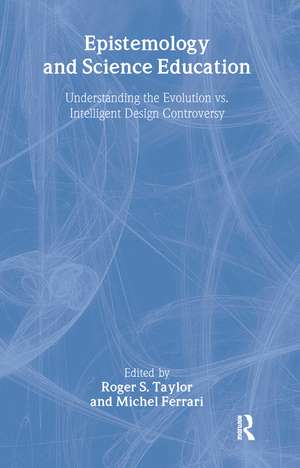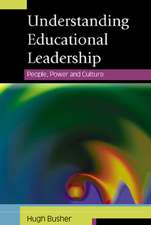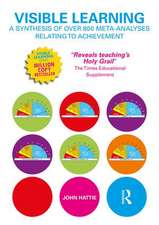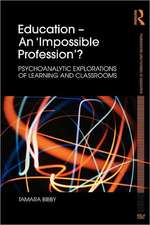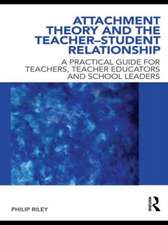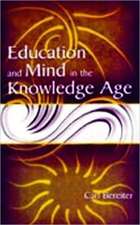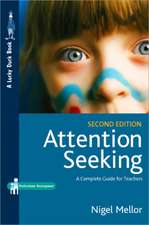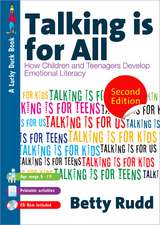Epistemology and Science Education: Understanding the Evolution vs. Intelligent Design Controversy
Editat de Roger S. Taylor, Michel Ferrarien Limba Engleză Paperback – 18 noi 2010
This is a very timely book for teachers and policy makers who are wrestling with issues of how to teach biology and evolution within a cultural context in which intelligent design has been and is likely to remain a challenge for the foreseeable future.
| Toate formatele și edițiile | Preț | Express |
|---|---|---|
| Paperback (1) | 441.37 lei 6-8 săpt. | |
| Taylor & Francis – 18 noi 2010 | 441.37 lei 6-8 săpt. | |
| Hardback (1) | 853.07 lei 6-8 săpt. | |
| Taylor & Francis – 18 noi 2010 | 853.07 lei 6-8 săpt. |
Preț: 441.37 lei
Nou
Puncte Express: 662
Preț estimativ în valută:
84.45€ • 88.18$ • 69.90£
84.45€ • 88.18$ • 69.90£
Carte tipărită la comandă
Livrare economică 04-18 aprilie
Preluare comenzi: 021 569.72.76
Specificații
ISBN-13: 9780415963800
ISBN-10: 041596380X
Pagini: 318
Ilustrații: 32
Dimensiuni: 152 x 229 x 17 mm
Greutate: 0.43 kg
Ediția:New.
Editura: Taylor & Francis
Colecția Routledge
Locul publicării:Oxford, United Kingdom
ISBN-10: 041596380X
Pagini: 318
Ilustrații: 32
Dimensiuni: 152 x 229 x 17 mm
Greutate: 0.43 kg
Ediția:New.
Editura: Taylor & Francis
Colecția Routledge
Locul publicării:Oxford, United Kingdom
Cuprins
Preface
Part I: Epistemology
1. Demarcation in Science Education: Toward an Enhanced View of Scientific Method (Richard A. Duschl & Richard Grandy)
2. Evolution, Creation, and the Philosophy Of Science (Paul Thagard)
3. Differences in Epistemic Practices among Scientists, Young Earth Creationists, Intelligent Design Creationists, and the Scientist-Creationists of Darwin’s Era (Clark A. Chinn & Luke A. Buckland)
4. Ontological Assumptions about Species and Their Influence on Students’ Understanding of Evolutionary Biology (Ala Samarapungavan)
5. Understanding Evolutionary Theory: The Role of Epistemological Development and Beliefs (Barbara K. Hofer, Chak Fu Lam, & Alex DeLisi)
6. Engaging Multiple Epistemologies: Implications for Science Education (E. Margaret Evans & Karl. S. Rosengren)
Part II: Intelligent Design & Evolution
7. Accepting evolution or creation in people, critters, plants, and classrooms: The maelstrom of American cognition about biological change (Michael A. Ranney & Anastasia Thanukos)
8. Science and Religion: Ontologically Different Epistemologies? (Gale M. Sinatra & Louis Nadelson)
Part III: Teaching Science
9. Toward a Cognitive Understanding of Science and Religion (Ryan D. Tweney)
10. Teaching and Learning Evolution as an Emergent Process: The BEAGLE project (Uri Wilensky & Michael Novak)
11. Teaching Evolution in a Historical Context: From the Wisdom of the Ancient Greeks to Genetic Algorithms (Michel Ferrari, Peter Lee, & Roger S. Taylor
Conclusion
12. Teach the Demarcation: Suggestions for Science Education (Michel Ferrari & Roger S. Taylor)
Part I: Epistemology
1. Demarcation in Science Education: Toward an Enhanced View of Scientific Method (Richard A. Duschl & Richard Grandy)
2. Evolution, Creation, and the Philosophy Of Science (Paul Thagard)
3. Differences in Epistemic Practices among Scientists, Young Earth Creationists, Intelligent Design Creationists, and the Scientist-Creationists of Darwin’s Era (Clark A. Chinn & Luke A. Buckland)
4. Ontological Assumptions about Species and Their Influence on Students’ Understanding of Evolutionary Biology (Ala Samarapungavan)
5. Understanding Evolutionary Theory: The Role of Epistemological Development and Beliefs (Barbara K. Hofer, Chak Fu Lam, & Alex DeLisi)
6. Engaging Multiple Epistemologies: Implications for Science Education (E. Margaret Evans & Karl. S. Rosengren)
Part II: Intelligent Design & Evolution
7. Accepting evolution or creation in people, critters, plants, and classrooms: The maelstrom of American cognition about biological change (Michael A. Ranney & Anastasia Thanukos)
8. Science and Religion: Ontologically Different Epistemologies? (Gale M. Sinatra & Louis Nadelson)
Part III: Teaching Science
9. Toward a Cognitive Understanding of Science and Religion (Ryan D. Tweney)
10. Teaching and Learning Evolution as an Emergent Process: The BEAGLE project (Uri Wilensky & Michael Novak)
11. Teaching Evolution in a Historical Context: From the Wisdom of the Ancient Greeks to Genetic Algorithms (Michel Ferrari, Peter Lee, & Roger S. Taylor
Conclusion
12. Teach the Demarcation: Suggestions for Science Education (Michel Ferrari & Roger S. Taylor)
Notă biografică
Roger Taylor is Assistant Professor in the Psychology Department at the State University of New York, Oswego.
Michel Ferrari is Associate Professor and Head, Center for Applied Cognitive Science, University of Toronto/Ontario Institute for Studies in Education.
Michel Ferrari is Associate Professor and Head, Center for Applied Cognitive Science, University of Toronto/Ontario Institute for Studies in Education.
Descriere
This pioneering book coordinates and provides a complete picture of the intersections in the study of evolution, epistemology, and science education, in order to allow a deeper understanding of the intelligent design vs. evolution controversy.
